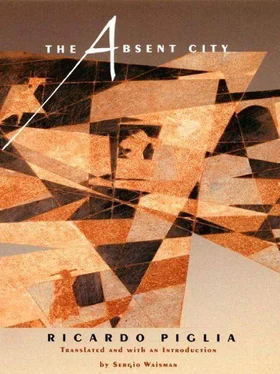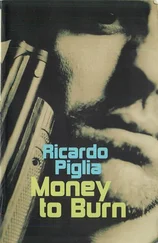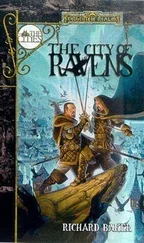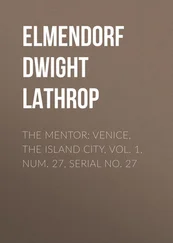That is how things are on the island.
“Language is transformed according to discontinuous cycles that are reproduced in the majority of known languages [Turnbull notes]. The inhabitants can instantaneously talk and understand the new language, but they forget the previous one. The languages that have been identified so far are English, German, Danish, Spanish, Norwegian, Italian, French, Greek, Sanskrit, Gaelic, Latin, Saxon, Russian, Flemish, Polish, Slovenian, and Hungarian. Two of the languages that have appeared are unknown. They shift from one to the other, but are not conceived of as distinct languages, but rather as successive stages of one single language.” The duration is variable. Sometimes a language lasts for weeks, sometimes just one day. The case of a language that remained still for two years is also remembered. But it was then followed by fifteen modifications within twelve days. We have forgotten the lyrics to all the songs, Berenson said, but not the melodies. Still, there was no way to sing a song. You would see people in the pubs whistling together like Scottish guards, everyone drunk and happy, marking time with mugs of beer while they searched their memories for any words that might go with the music. Melody has survived, it is a breeze that has blown across the island since the beginning of time, but what good is music to us if we can’t sing on a Saturday night, in Humphrey Chimpden Earwicker’s bar, when we’re all drunk and have forgotten that we have to go back to work on Monday.
On the island they believe that when old people die they are reincarnated into their grandchildren, this being the reason why one can never find both alive at the same time. However, since, despite everything, it does occur at times, when an old person sees his grandchild, he has to give him a coin before he can talk to him. Historical linguistics is based on this theory of reincarnation. Language is how it is because it accumulates the remnants of the past with each generation and renews the memory of all the dead languages and all the lost ones. He who receives this inheritance can no longer forget the meaning that words had in the days of his ancestors. The explanation is simple, but does not solve the problems posed by reality.
The unstable character of language defines life on the island. One never knows what words will be used in the future to name present states. Sometimes letters arrive addressed with symbols that are no longer understood. Sometimes a man and a woman are passionate lovers in one language, and in another they are hostile and barely know each other. Great poets cease being so and see other classics emerge in their own lifetime (which in turn are also forgotten). Every masterpiece lasts only as long as the language in which it is written. Silence is the only thing that persists, clear as water, ever the same.
The day’s activities begin at sunrise, but if the moon has been out until dawn, the yelling of the youths can be heard from the hillside even before then. Restless in those nights full of spirits, they scream to each other, trying to guess what will happen when the sun rises. Tradition has it that language is modified when there is a full moon, but this belief is belied by the facts. Scientific linguistics holds that there is no correlation between natural phenomena, such as the tide or the winds, and the mutations of language. The men in the town, however, still observe the old rituals, and every night that the moon is full they stay up, waiting for their mother tongue to finally arrive.
On the island they cannot picture, they cannot imagine, what is outside. The category of a “foreigner” is unstable. How they conceive of their homeland depends on the language spoken at any given point in time. (“The nation is a linguistic concept.”) Individuals belong to the language that everyone spoke when they were born, but no one knows when that particular language will return again. “That is how something emerges in the world [Boas has been told] that appears to everyone in childhood, but where no one has ever been: the homeland.” They define space in relation to the Liffey River that runs through the island from north to south. But Liffey is also the name of the language, and all the rivers of the world are in the Liffey River. The concept of borders is temporal, their limits conjugated like the tenses of a verb.
We are now in Edemberry Dubblenn DC, the guide said, the capital that combines three cities in one. Currently the city runs from east to west, following the left bank of the Liffey through the Japanese and West Indian neighborhoods and ghettos, from the origin of the river in Wiclow to Island Bridge, a little below Chapelizod, where it continues its course. The next city appears as if it were built out of potentiality, always in the future, with iron streets and solar energy lights and disactivated androids in the cells of Scotland Yard. The buildings emerge from the fog, without any set shape, sharp, shifting, almost exclusively populated by women and mutants.
On the other side, to the west, above the area of the port, is the old city. When you look at the map you have to keep in mind that the scale is drawn according to the average speed of walking a kilometer and a half per hour on foot. A man comes out of 7 Eccles Street at eight in the morning, goes up Westland Row. On each side of the cobblestones are the gutters that lead to the shores of the river, where the singing of the washerwomen can be heard. A man going up the steep street toward Baerney Kiernam’s tavern tries not to hear the singing, hits the gratings of the cellars with his walking stick. Every time he turns onto a new street, the voices grow older. It is as if the ancient words were engraved on the walls of the buildings in ruins. The mutation has overwhelmed the exterior shapes of reality. “That which still isn’t defines the architecture of the world,” the man thinks, and goes down to the beach around the bay. “You see it there, on the edge of language, like the memory of one’s house from childhood.”
Linguistics is the most advanced science on the island. For generations scholars and researchers have worked on a project to develop a dictionary that would include future variations of known words. They would need to establish a bilingual lexicon that would allow for the comparison of one language with another. Imagine (Boas’s report says) an English traveler who arrives in a new country. In the hall of the train station, lost in the middle of a foreign crowd, he stops to check a small pocket dictionary for the right phrase. But translation is impossible, because the only thing that defines meaning is usage, and on the island they never know more than one language at a time. By now, those who still persist in trying to develop the dictionary think of it as a divination manual. A new Book of Mutations, Boas explained, conceived as an etymological dictionary containing the history of the future of the language.
There is only one known case in the history of the island of a man who knew two languages at the same time. His name was Bob Mulligan, and he claimed that he dreamt incomprehensible words whose meanings were transparent to him. He spoke like a mystic and wrote foreign phrases and said that those were the words of the future. A few fragments of his texts have survived in the Archives of the Academy, and one can even listen to a recording of Mulligan’s high-pitched, mad voice as he tells a story that begins like this: “Oh New York city, yes, yes, the city of New York, the whole family has gone there. The boat was full of lice so they had to burn the sheets and bathe the children in water mixed with acaricide. The babies had to be separated from each other, because the smell made them cry if they smelled it on each other. The women wore silk handkerchiefs over their faces, just like Bedouins, although they were all redheads. The grandfather of the grandfather was a policeman in Brooklyn who had once shot and killed a gimp who was about to slice the throat of a supermarket cashier.” No one understood what he was saying. Mulligan wrote the story down, as well as several others, in that unknown language, but then one day he announced that he could not hear anymore. He would come to the bar and sit there, at that end of the counter, drinking beer, deaf as a post, and he would get drunk slowly, with the facial expression of someone who is embarrassed to have made himself noticed. Never again did he want to talk about what he had said. He lived the rest of his life somewhat removed, until he died of cancer at the age of fifty. Poor Bob Mulligan, Berenson said, when he was young he was a sociable guy, and very popular. He married Belle Blue Boylan, and a year later she died, drowned in the river. Her naked body showed up on the east bank of the Liffey, on the other shore. Mulligan never recovered, nor married again. He lived the rest of his life alone. He worked as a linotypist at the Congressional presses, and he would come with us to the bar, and he liked betting on horses, and then one afternoon he started telling those stories that no one understood. I believe, Old-Man Berenson said, that Belle Blue Boylan was the most beautiful woman in all of Dublin.
Читать дальше












